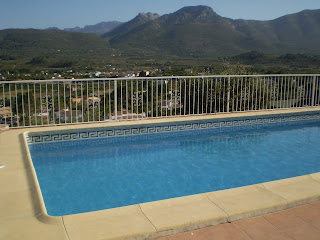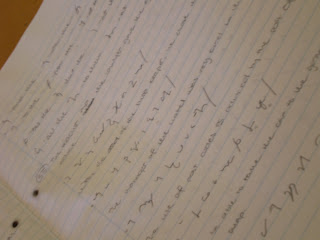So we're off, WINOL (Winchester News Online) is up and running with our weekly 15 minute bulletin. Before success comes failure, and well... we're not quite at the successful point yet - but we will get there!!
Anyway, this is how it goes:
Monday started off by everyone (read especially me) being totally confused. Yes, I knew I was supposed to bring my three news stories to be viewed and discussed and eventually hopefully chosen to be put in action. But other than that, I didn't really have a clue what the week would offer me and everyone else. It offered a lot. And it started out with me hating it.
The first news meeting went alright. We talked for absolute ages, but we managed to get through with everyone assigned to do something. I was assigned to look into my 'closure of polling stations around the UK' story and managed to get an interview with Steve Brine (conservative) and Martin Tod (lib dem) for Tuesday.
The interviews were taking place in the morning/early afternoon and we discussed Mr. Tod's and Mr. Brine's ideas about the new proposal put forward by the Government and Mr. Straw the other week. I felt as my angle, to put the story through the view of people living and voting in the rural areas of Britain, made an interesting piece. So, I took my (veronica's) camera, and brought her and Mr. Fluffy to Chilbolton where I was able to record my GV's (general views) and also my first PTC (piece to camera). An eventful day where most things went so much better than I could ever have imagined, this because of all the technical equipment I had to fibble around with and use, and because of the dreadful weather that almost killed the equipment before black bin bags were put around the cases, preventing it from drowning.
When I came home on Tuesday night I felt pleased with what I had managed to do so far, and I was very content with myself and my 'technical skills'. But there was still the Wednesday to come, and with editing, I knew that a million and twenty things could go wrong. Been there before.
Once getting started with editing it went quite smooth. But getting started took quite a while because me and Veronika had been very smart (read not very smart) to put both our material for both our stories on the same tape which we had to capture and divide between us. It went well though, I was just about to finish off my piece before the dangerous deadline at 1pm, when my fellow students discovered my story was not contemporary news anymore. Aoch. So we had to withdraw my piece which felt like a disaster. Absolutely heart breaking. I was done. On time. I made the deadline! And yet, it could not make the bulletin. Argh!
We curiously watched and listened to our friends as the bulletin went live! We got through, went live on time. Missed to record it. Someone missed a deadline. Black spots. Wrong links. Sound everywhere. But oh so much fun. It felt as if we were all able to get there. Together. And now we definitely know what not to do in the future.
This first week of WINOL running, dummy edition week, I've learnt so incredibly much. More than throughout the entire last year! I know that I need to learn how to deal with myself when things don't work out as I've planned them to, because as a journalist that's life. I know that I need to work on me being not as nice as I am when talking to people. Need to be more hardcore. Will get there eventually. From being the girl who hates to talk to strangers I think I've come a great long way already and from here it can only get better.
I'm also very pleased that we are working with the third years, since this means we can get inspired by people who already been through what we second years are going through now and get a hand when needed, when it comes to both technical issues and linguistic problems.
I was delighted when the weekend finally arrived and I knew I had managed to get through week one, and with my new won knowledge on being a journalist I felt stronger than ever. Knowing that I can do it. I can do it. And I love it.
Maddie

 k to see my dear family in the snowy country Sweden. Should be absolutely great. And, I think snow might do the trick. Snow, xmas carols and glögg (kind of similar to mulled wine but not quite, get some from IKEA now and enjoy with gingerbreads).
k to see my dear family in the snowy country Sweden. Should be absolutely great. And, I think snow might do the trick. Snow, xmas carols and glögg (kind of similar to mulled wine but not quite, get some from IKEA now and enjoy with gingerbreads). 





 But, our main aim for this trip was not all the beautiful monuments and sightseeings as mentioned above, even though it was an experience I will never forget. No, our main aim was to attack
But, our main aim for this trip was not all the beautiful monuments and sightseeings as mentioned above, even though it was an experience I will never forget. No, our main aim was to attack 







 little while to pick up from where you ended last time you tried to get through the book. But I do think it's getting easier every time - this might be due to the fact that I've started over from the very beginning three times now.. But hey, I will get there. Sooner or later.
little while to pick up from where you ended last time you tried to get through the book. But I do think it's getting easier every time - this might be due to the fact that I've started over from the very beginning three times now.. But hey, I will get there. Sooner or later.